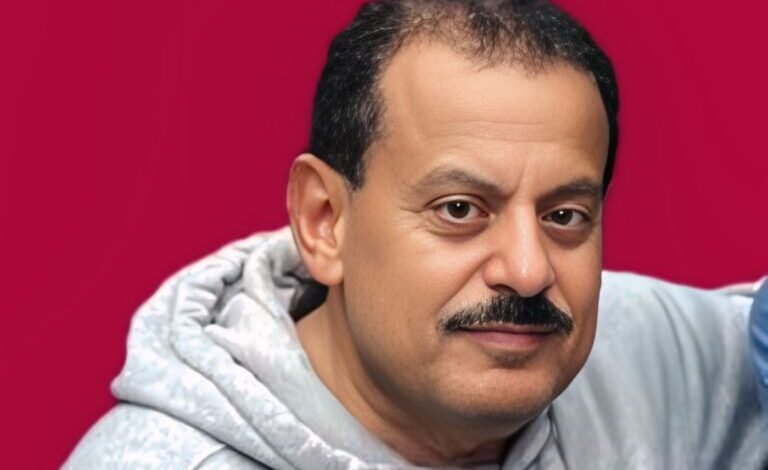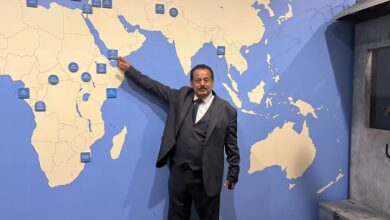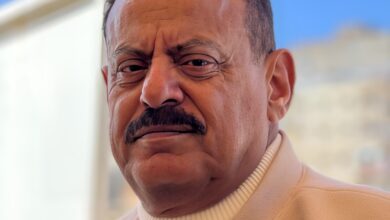Research Methodologies

Yemeni mp
Ahmed Saif Hashed
I began my rebellion in childhood with an innocent question. When I was silenced and scolded—or when my question was met with a lie that either failed to deceive me, or deceived me for a time until its falsity was revealed—questions multiplied. They bred like light in a night thick with darkness, defying the gloom and its dread. No weight of repression could extinguish their breath, though it might muzzle them for a while, postponing them with the short rope of falsehood. Yet in the embers of the mind they remained ablaze, resisting extinction, flaring in every distant horizon, searching in existence for an answer. In the prison of the chest—shackled by bonds heavier than iron—they roamed restlessly, storming within, refusing to be still until a healing answer was found.
The course on Research Methodologies at the Faculty of Law was among the subjects that captivated me most, stirring endless curiosity and questions. From it I learned that research methods are the very tools of science, the forge where knowledge is wrought. They are the foremost aid in the advancement of all sciences—the compass by which we find our bearings, the disciplined path that uncovers the new and responds to the questions we dare to ask.
I would collect whatever books I could, adding to my understanding and uncovering what I did not know. I did not confine myself to prescribed lessons and their references, but always sought more—from here, from there, from every place. Eagerly, I would go to the library, reading about research methods and whatever helped me gain knowledge and reach answers. For research methods are the essential road to resolving the intractable questions. And a seeker of truth is unworthy of his quest if he does not strip himself of debris, attachments, emotions, and all that distorts or falsifies awareness.
My grades in the research methods course were (4 out of 5). Yet it was no easy feat to wrest such a score from the professor, Dr. Ahmed Zain Aidaroos. He had a particular philosophy about grades: only the author of a book deserved five out of five, the professor who taught it merited no more than four, and even the most outstanding student should not be granted beyond three. But when he encountered a student who was well-versed, diligent, and widely read, he might award him four marks—that is, “Very Good”—a grade both he and we considered formidable, one attained only by the rarest few after great toil.
In Research Methodologies I achieved a score of 82 out of 100—perhaps the highest grade among his students. Dr. Ahmed Zain was even more parsimonious than Professor Hamed, from whose course Theory of State and Law I earned 88 out of 100—almost the highest he ever granted a student in that cohort. Both Dr. Ahmed Zain and Professor Hamed were the strictest in awarding marks in the faculty. Education was rigorous, perseverance indispensable, and grades precious. You strove with all your strength to reach what you could attain—closer to an act of wresting than to a mere “harvest.”
Professor of Research Methodologies, Ahmed Zain Aidaroos—a slender man with a dusky complexion, fully versed in his subject—was ever cautious of stepping into the political arena bristling with repression, perhaps because he himself had once been imprisoned. Free from ideological shackles, I still remember him urging us that whoever among us sought to engage in research must embrace neutrality, objectivity, and detachment. He would insist on the necessity of casting aside all preconceptions and convictions, never turning back to them.
In this very spirit, the French philosopher, mathematician, and physicist René Descartes once declared: “If you would be a real seeker after truth, it is necessary that at least once in your life you doubt, as far as possible, all things.” He further added: “The senses occasionally deceive us, and it is wise never to place complete trust in those who have deceived us even once.”
What I learned in the Research Methodologies course at the university proved immensely valuable to me later in my studies at the Higher Judicial Institute. I came from one intellectual school only to collide with another—an archaic, traditionalist one, drowned in a past that could never return. Worse still, much of its research was preoccupied with menstruation, postpartum bleeding, purification, the “middle prayer,” and rituals of worship in general.
During my studies at the Institute, whenever I raised a question, voiced doubt, or pointed out a contradiction, I would witness my classmates splitting into two factions—Sunnis and Shi‘as—though rarely did they announce this affiliation openly. I longed to probe this divide, and so I chose the subject of my research accordingly, applying the scientific research methods I had mastered in the Faculty of Law in Aden. My situation was not unlike that of a man storming into a hornets’ nest.
My research focused on two principal aspects: first, the political conflict in early Islam; and second, the Qurayshi system of rule and its stipulation that only a Qurayshi could hold supreme authority. After developing the study further, I presented it to Professor Abu Bakr Al-Saqqaf. In its dedication I mentioned him and Abdul Habib Salem.
Dr. A l-Saqqaf admired the work. He referred to it three times in his own writings and urged me on several occasions to publish it. He even wished I would add a chapter examining kinship and tribalism in the system of rule then prevailing in Sana’a, much as I had analyzed in the Qurayshi system. When I confessed my fears of antagonizing everyone, he simply told me: “Research requires daring incursions into danger.”
And yet, to this day, I have refrained from publishing that study. In a society still mired in backwardness, under a legal system even more regressive, I held back. But time still remains, though the present has grown harsher, heavier, more suffocating and perilous than the past. It echoes well the words of the poet Farouk Goweda:
“This is the age of fools, and woe, utter woe, to those who understand.”
A year later, I returned to retrieve my research from the Judicial Institute’s library—but I found it gone. All other theses had been preserved intact, except mine, which eluded me despite repeated searches at different times. Still, the study has remained in my possession, ready to be published as a book for nearly twenty-five years. And each time I thought the moment of release had finally arrived, I was confronted with an era even more dangerous, reckless, and debased than the one before.






